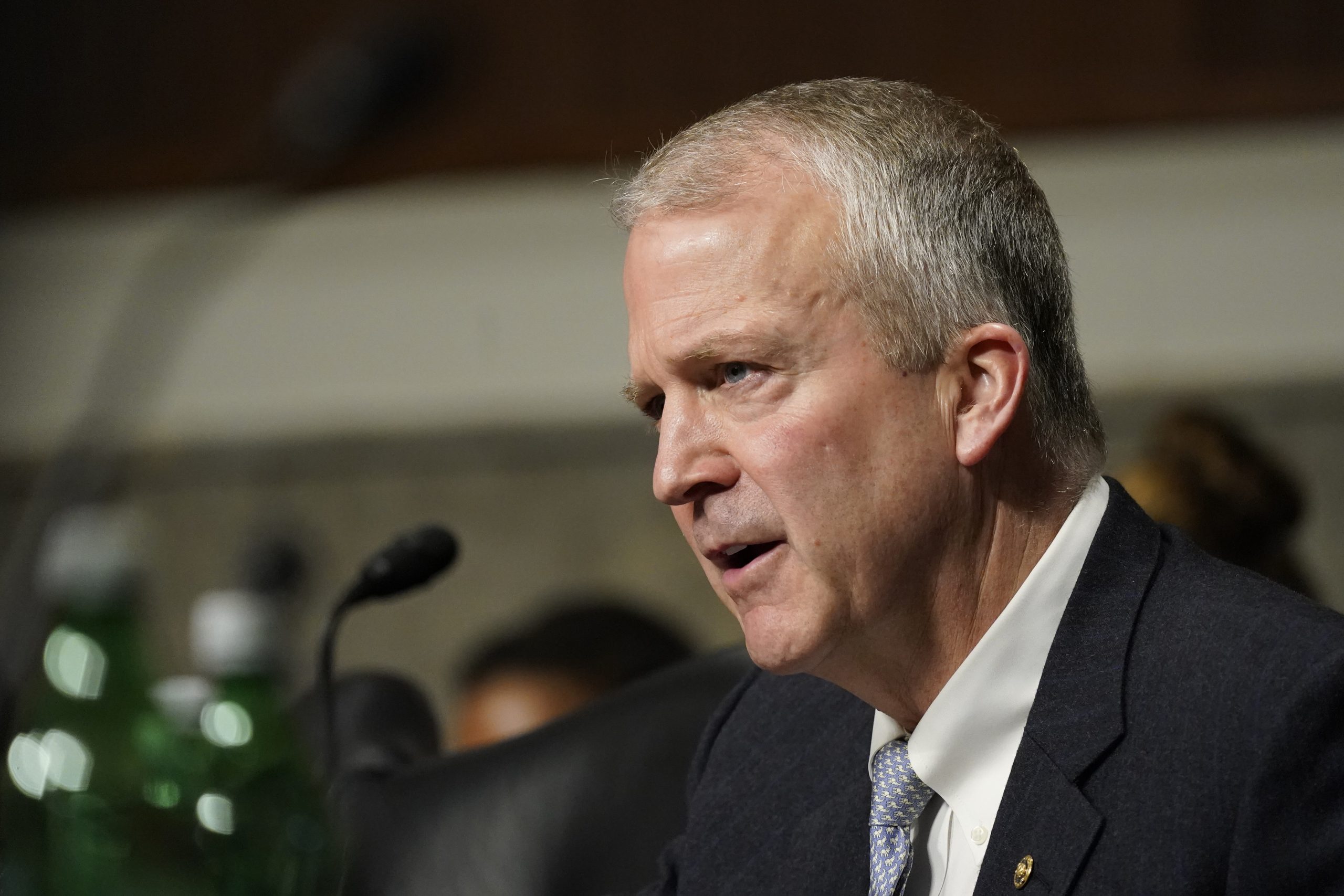A significant political maneuver recently unfolded in the U.S. Senate, where an Alaska Senator briefly employed a legislative blockade that delayed the confirmation of a key military leader. This unexpected action, centered on a long-dormant military installation, highlighted the intricate relationship between congressional oversight and defense policy, impacting crucial military nominations and the stability of the nation’s naval leadership.
The legislator, Senator Dan Sullivan, strategically placed a hold on the otherwise noncontroversial nomination of Admiral Daryl Caudle for Chief of Naval Operations. The primary objective behind this bold move was to compel the Pentagon to revisit the potential reopening of the Adak Naval Air Station, a strategically important yet long-shuttered facility in the Aleutian Islands off the coast of Alaska.
Senator Sullivan has consistently championed the expansion of the U.S. military presence in the Alaskan region, asserting its criticality for national security interests. He has garnered endorsements from several top military commanders for the revitalization of the Adak Naval Air Station, underscoring its perceived importance in broader defense strategies and projecting power in the northern Pacific.
The timing of the Senate blockade was particularly notable, occurring as the chamber was rapidly approaching its August recess. The hold threatened to leave the Navy without a permanent confirmed leader for an extended period, creating a vacuum in naval operations leadership that could have significant implications for military readiness and strategic planning.
However, the legislative impasse was swiftly resolved following a constructive dialogue between Senator Sullivan and the Secretary of Defense. A spokesperson for the senator confirmed that the hold was lifted after this conversation, allowing Admiral Caudle’s confirmation to proceed, thereby providing the Navy with a permanent military chief after a five-month vacancy.
While details of any specific agreement between Senator Sullivan’s office and the Defense Department remain undisclosed, the senator’s long-standing advocacy for bolstering the U.S. military footprint in Alaska is well-documented. His persistent efforts to highlight the strategic value of the Adak Naval Air Station underscore a broader concern for regional security and national defense policy.
Prior to the brief Senate blockade, Admiral Caudle’s confirmation had appeared virtually assured, having smoothly passed through his Senate Armed Services Committee vote with widespread support. The sudden legislative maneuver was a departure from the expected path, drawing attention to the power of individual senators to influence critical government appointments, even for high-ranking military confirmations.
Admiral Caudle’s confirmation was part of a broader series of approvals for senior military leaders. These included significant promotions such as Navy Vice Admiral Frank Bradley to lead U.S. Special Operations Command and Air Force Lieutenant General Dagvin Anderson to head U.S. Africa Command, further solidifying key leadership positions across various branches of the armed forces.






Leave a Reply